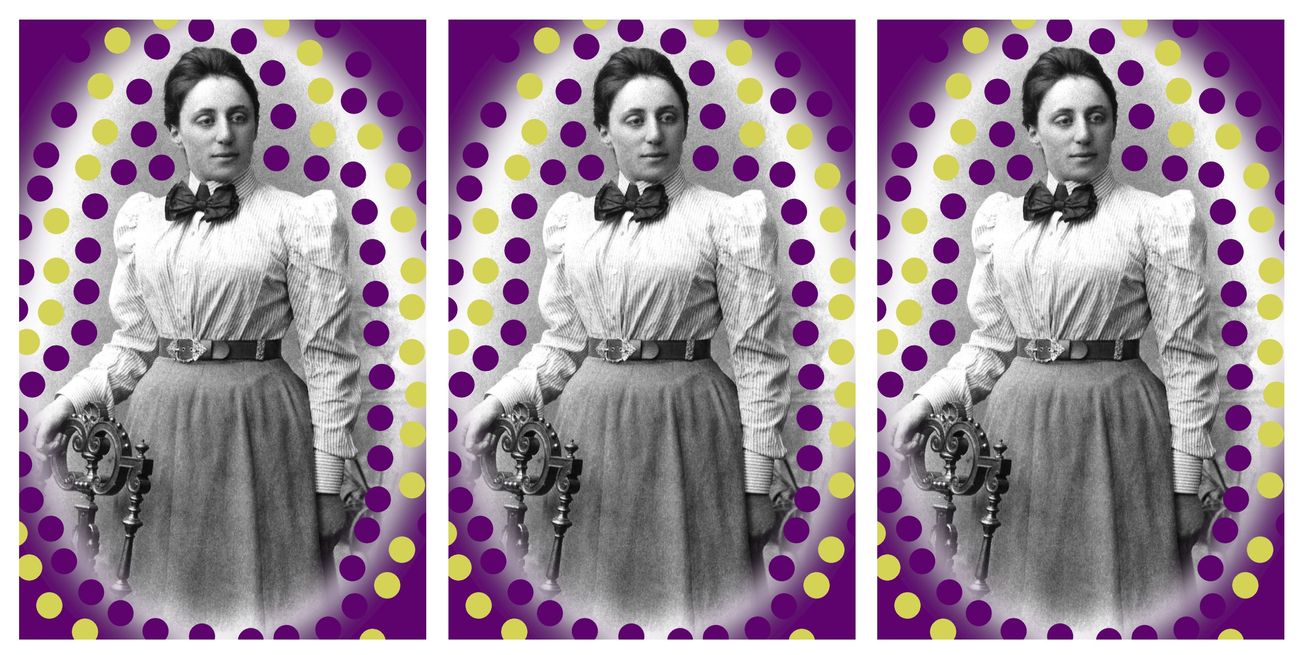By Oliver Cohen, Digital Features Editor
On the 138th anniversary of her birth, we celebrate Emmy Noether, a pioneering 19th century mathematician and theoretical physicist.
Noether is a name not usually placed aside the likes of Newton, Galileo and Einstein in the hall of fame of physicists the general public is aware of. Among fellow mathematicians and physicists, however, few would fail to laud her significant achievements. Born Amalie Emmy Noether in late 19th century Germany, and being both a woman and a Jew, a career in the sciences would have been far from her expected trajectory in life.
Yet doing the unexpected and achieving what no one could have imagined of her was a theme that tinted her life from the very start. Her achievements, nevertheless, were hard-fought. From the very beginning, she faced fierce opposition on the basis of her gender just to be a student. In the 1900s, a time when women's suffrage was still almost two decades away in both England and her native Germany, attending University was only possible for women on an unofficial basis. The protocol required a woman to seek permission from all of her lectures to sit in on their lectures, and they couldn't be formally recognised as students.
| The urgent need to STEMpower women
History submitted to progress thankfully, and in 1904 German rules were changed such that Women could be admitted to higher education on an equal basis as men. The newfound situation allowed her to fully enrol, and she was able to gain a doctorate in 1907, graduating summa cum laude. The usual progression for a man following such a milestone was the final qualification, the German 'Habilitation' which enabled the person awarded to teach and become an academic. Even with the recent progress made in the strive for equality, such a path was still not open for women. Consequently, Emmy stepped back to take care of her father, who was becoming increasingly frail.
1921: Emmy Noether #womenoftheyear https://t.co/qTB9OEfG6j pic.twitter.com/JFoHWWkegu
— TIME (@TIME) March 5, 2020
Such structural barriers and inequalities could not stop her rise to academic prowess. Undertaking independent research stoked the flames of her rising notoriety and only a year later in 1908 she was elected to the Circolo Matematico di Palermo, the oldest mathematical society in Italy. In the same period, her work began on what her friends and admirers would later call the first of her three 'epochs' of research.
Her research, covering large areas of maths and mathematical physics, is impossible to do justice in pithy words alone; but suffice to say she produced work of a quality shared by a small handful of researchers from the last century. At least in the realm of physics, Noether's Theorem is often seen as her crowning achievement. Its implications are as profound as the complexity of the context in which it exists. In a simplified and mathematically defiled nutshell, it creates a marriage between symmetries in nature and conserved quantities in the equations that describe them.
A powerful illustration of this is the so-called homogeneity of space; the fact that the laws of physics do not change wherever you go. An apple falls to the ground on Mars in much the same way it does on Earth. Noether's powerful theorem acted as a useful tool allowing physicists to show this to be an entirely equivalent statement to Newton's Third Law.
In much the same way the theory married different aspects of physics, it linked work across time, illuminating the past work of Newton and the founding fathers as well as seeing modern use with the ideas of Einstein. In relativity, Albert's crowning achievement, Noether's theorem enjoys a prominent role.
| Meet Dr Mika Tosca, who is merging climate science and art
Such prominent achievements stand in stark contrast to the situation from which they spawned, with Noether not being formally paid for her university position until around 1922. This standing almost two decades from when she first got into higher academia. She unfortunately died a further decade later in America, having fled her homeland in the act of escape from the Nazi regime as a Jew. In her short life, she accomplished a great deal.
A great many achievements went beyond just the papers she published. In the words of her long-time friend Hermann Weyl, ‘many of her suggestions took shape only in the works of her pupils and co-workers.’ Her legacy lived on through the impact of the ideas of those who surrounded her.
Featured image: Flickr / rabinal
Want to write about your research? Get in touch!









